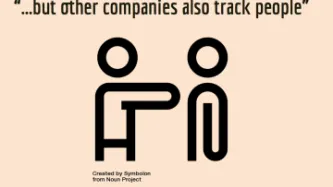Advanced Search
Content Type: Press release
Meta, the largest provider of social media sites and display advertising in the UK, acquired GIPHY, the largest provider of GIFs. In its report of 30 November 2021 the CMA found that the completed merger between Meta and GIPHY will give rise to a substantial lessening of competition.
The CAT confirmed the CMA's assessment and dismissed all but one of Meta’s appeal grounds, paving the way for Meta to sell GIPHY, as demanded by the CMA.
PI was granted permission to intervene in this case, one of…
Content Type: Video
<br />
Links
Read more about the ICO's provisional decision
Support our work
You can find out more about Clearview by listening to our podcast: The end of privacy? The spread of facial recognition
Content Type: News & Analysis
Unwanted Witness’ research into Safeboda highlighted the company’s failure to comply with some of the law's core data protection principles, with a number of implications for the exercise of data subject rights. The enforcement action against Safeboda by National Information Technology Authority, Uganda (NITA-U) requires the company to make fundamental changes to how they handle people's personal data in order to comply with the Data Protection and Privacy Act, 2019.
This first landmark…
Content Type: News & Analysis
Today, the UK High Court has quashed a decision by the Investigatory Powers Tribunal (IPT) and held that section 5 of the Intelligence Services Act (ISA) 1994 does not permit the issue of general warrants to authorise property interference and certain forms of computer hacking.
The Court referred to cases dating back to the 18th century, which demonstrate the common law’s insistence that the Government cannot search private premises without lawful authority even in the national security…
Content Type: News & Analysis
In September 2019, PI published the report Your Mental Health for Sale. Our investigation looked into popular mental health websites and their data sharing practices.
Our findings suggest that, at the time of the research, most websites we looked at were using third party tracking for advertising purposes, sometimes relying on programmatic advertising technologies such as Real Time Bidding (RTB), sharing personal data with potentially thousands of actors. Some websites were also found sharing…
Content Type: Long Read
Photo by Nadine Shaabana on Unsplash
Digital identity providers
Around the world, we are seeing the growth of digital IDs, and companies looking to offer ways for people to prove their identity online and off. The UK is no exception; indeed, the trade body for the UK tech industry is calling for the development of a “digital identity ecosystem”, with private companies providing a key role. Having a role for private companies in this sector is not necessarily a problem: after all, …
Content Type: Long Read
Details of case:
R (on the application of Privacy International) (Appellant) v Investigatory Powers Tribunal and others (Respondents)
[2019] UKSC 22
15 May 2019
The judgment
What two questions was the Supreme Court asked to answer?
Whether section 67(8) of RIPA 2000 “ousts” the supervisory jurisdiction of the High Court to quash a judgment of the Investigatory Powers Tribunal for error of law?
Whether, and, if so, in accordance with what principles, Parliament may by…
Content Type: News & Analysis
In December 2018, we revealed how some of the most widely used apps in the Google Play Store automatically send personal data to Facebook the moment they are launched. That happens even if you don't have a Facebook account or are logged out of the Facebook platform (watch our talk at the Chaos Communication Congress (CCC) in Leipzig or read our full legal analysis here).Today, we have some good news for you: we retested all the apps from our report and it seems as if we…
Content Type: Impact Case Study
What HappenedOn 5 June 2013, The Guardian published the first in a series of documents disclosed by Edward Snowden, a whistleblower who had worked with the NSA. The documents revealed wide-ranging mass surveillance programs conducted by the USA’s National Security Agency (NSA) and the UK’s Government Communications Headquarters (GCHQ), which capture the communications and data of hundreds of millions of people around the world. In addition to revealing the mass surveillance programs of the NSA…
Content Type: Impact Case Study
What happenedStrong and effective data protection law is a necessary safeguard against industry and governments' quest to exploit our data. A once-in-a-generation moment arose to reform the global standard on data protection law when the European Union decided to create a new legal regime. PI had to fight to ensure it wasn't a moment where governments and industry would collude to reduce protections.In January 2012, the European Commission published a proposal to comprehensively reform the…









